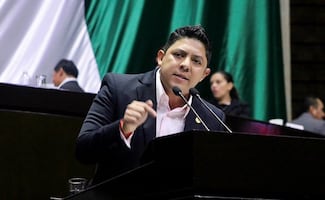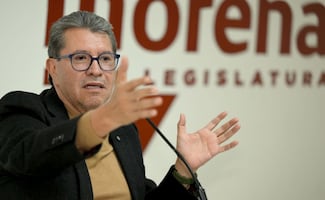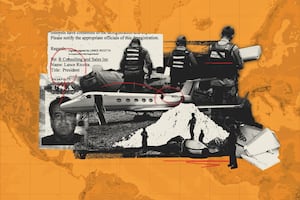Más Información

En SLP nunca ha existido una gobernadora y ahora hay una posibilidad real que así sea, asegura Ricardo Gallardo tras aprobación de "Ley Esposa"

Morena analiza disminución de pluris y elección popular de consejeros del INE: Monreal; serán revisadas en la reforma electoral, dice

Rastro de jets vinculados al narcotráfico lleva a un vendedor en California… y a un punto ciego de la regulación aérea en Estados Unidos

Secretaría Anticorrupción sanciona a dos empresas por buscar contratos con información falsa; imponen multa de miles de pesos

Banxico se despide de 2025 con otro recorte a la tasa de interés; queda en 7% por ajuste de 25 puntos base
When a person infected with COVID-19 is hospitalized, they are isolated and have no communication with their families. No one can enter the hospital to learn about their health or to visit them. If there is progress, they will meet once the patient leaves the hospital. If the patient dies, they will receive ashes . At the start of the pandemic in Europe, one of the saddest images was that of Italian patients saying goodbye to their families through a video call and now, these type of situations are taking place in Mexico City , where they implemented calls and video calls to communicate patients and their families.
These calls last up to five minutes, through a phone staff lends to the family. Each hospital defines the schedule for these calls and always prioritizing the health of the patient.
Espouses, siblings, and other family members waiting outside hospitals criticize the indifference of healthcare workers .
Weeks ago, the lack of communication between healthcare workers and a family sparked an attack against doctors , nurses , and staff in a clinic in Ecatepec , when the family broke into the hospital, potentially endangering their lives and the lives of health workers.
Recommended: The Mexican nurse sending hope to COVID-19 patients
Unfortunately, this is the same treatment patients and families received before the COVID-19 pandemic. For years, criticism has been directed to the lack of empathy shown by the healthcare workers to the families, who just want to know how the patient is doing.
The elevated risk of contagion of the novel coronavirus exacerbated the distance between doctors and families. Now that the situation is changing, at least in Mexico City, there is hope for a change so that health workers show empathy and solidarity to the families and patients.
Besides the video calls , there are some workers who are willing to listen to families. Today, EL UNIVERSAL reports the story of Laura, a nurse at the Manuel Gea González hospital, who arrives early at work every day to that she is able to collect the letters families write to their loved ones and deliver them to the patients.
The video calls or the actions of workers such as Laura wouldn’t have to be an exception, but the rule. When the pandemic is over, the rules and relationships inside hospitals should be modified. This public health emergency is an opportunity to set a precedent in regards to empathy .
Recommended: COVID-19 Live Updates: Mexico
gm
Noticias según tus intereses
[Publicidad]
[Publicidad]








